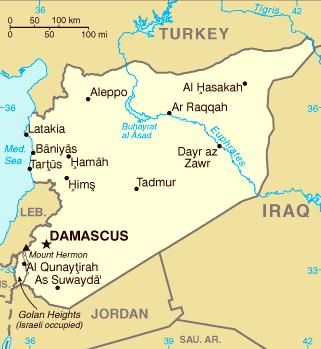When the Syrian capital of Damascus was rocked by a car bomb on Sept. 27, the wheels started spinning wildly inside intelligence agencies, Middle Eastern tea houses, and conspiracy theorist circles alike. The explosion, which killed 17 people and injured 14, took place along the Damascus airport highway close to a Syrian intelligence installation. The question on everyone's mind was: Who did this and why? The most striking aspect of the search for answers is just how many theories are potentially credible. Clearly, Syrian President Bashar al-Assad has been walking a high wire of strategic alliances, making friends and enemies within every conflict in the Middle East; a dangerous game, indeed. Under the young Assad, Syria has built strong links with Shiite militias operating in Lebanon and with Sunni extremists in the Palestinian territories. It has allied itself with Iran and it has initiated indirect peace talks with Israel. The regime is simultaneously strengthening ties with France, while vowing lasting and deep friendship with Iran. Syria has worked to bolster relations with a resurgent Russia, even as it looks to the West in search of new friends. Countries ruled by secure and well-entrenched dictatorships tend to look calm on the surface. But Syria has lately seen a number of attacks that indicate the regime of Bashar al-Assad does not have as firm a grip on the country as his father Hafez did. The elder Assad ruled Syria with an iron fist for almost 30 years, until his death in 2000. Since succeeding him, Bashar has sought to keep his minority Alawite regime in control of the country while navigating the treacherous strategic landscape of the Middle East.
Syria: The Return Address on a Car Bomb

